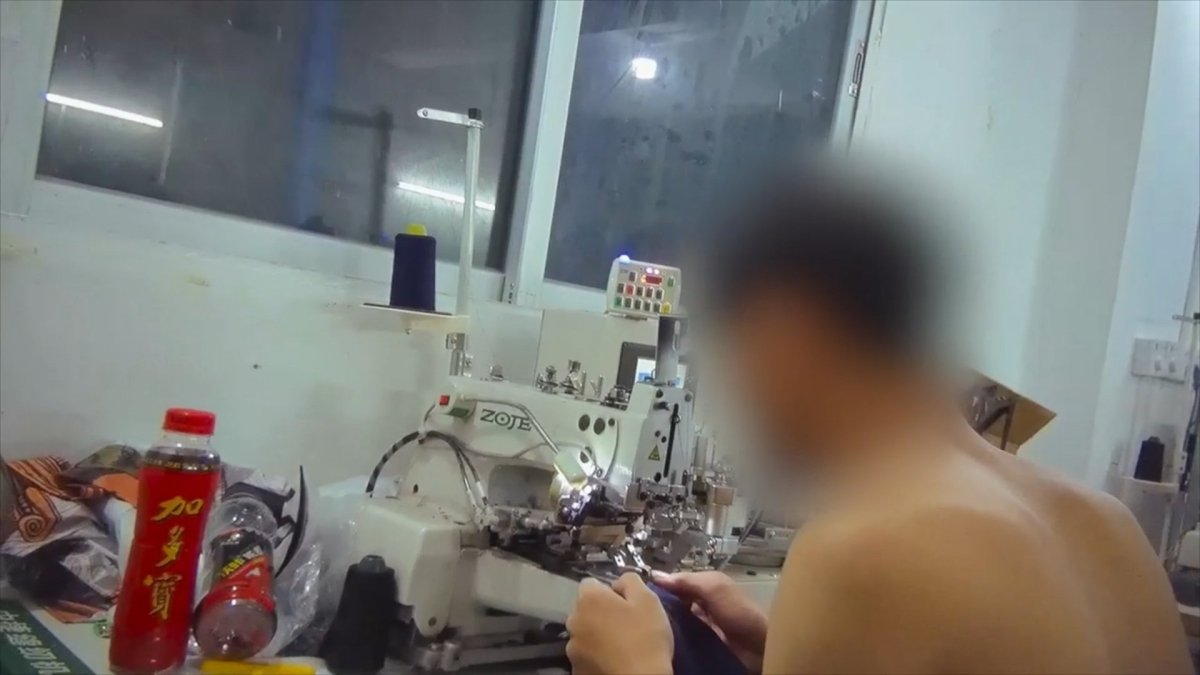
Exploitation in Chinese factories of Shein, the world’s largest clothing company
Garment workers at clothing giant Shein’s Chinese factories work 18-hour days, don’t have weekends, and are only paid a third of their wages if they make a mistake. This emerges from a documentary by the British broadcaster Channel 4, which can be seen from Monday.
Channel 4 investigative journalists have managed to uncover the very secretive Chinese fashion empire. Shein is an online fast fashion retailer that was founded in 2008 but has grown rapidly in recent years. The company became the world’s largest apparel company in 2021, and at an estimated $100 billion is bigger than fashion chains H&M and Zara.
The United States and Europe are the largest markets for the clothing and accessories that Shein offers, starting at €2. The company has a prominent social media presence and is able to copy online trends and catwalk looks faster than other chains.
4 cents per item of clothing
Garment workers are also being exploited, according to an investigative journalist who went to work in two factories in the southern Chinese city of Guangzhou. She secretly filmed staff sewing garments for customer Shein from 8:00 a.m. until late at night.
For a wage of 572 euros a month, workers in one of the factories have to assemble at least 500 pieces of clothing a day. If you make a mistake, two-thirds of your salary will not be paid. In another factory there is no fixed salary, but 4 cents per finished garment.
Employees in the clothing factories do not only have to work one day a month. The undercover journalist has seen women washing their hair during their lunch break because they don’t get to do it outside of work hours.
‘Extremely short delivery times’
Many of the findings support the conclusions of the Swiss advocacy group Public Eye, which spoke to ten employees at various Shein manufacturing plants in Guangzhou last year. Public Eye is a sister organization of the Dutch NGO Clean Clothes Campaign. “These results do not surprise us,” said spokesman Wyger Wentholt.
“This kind of excess is part of ultra-fast fashion. Factories have to cope with extremely short order and delivery times, which puts enormous pressure on textile workers. Aside from the ridiculous wages and reprimands when people make a mistake, female workers in particular have been more likely to associate violence with night hours.”
Contrary to Chinese labor law
Working conditions at the factories surveyed violate Chinese labor laws and the standards Shein has set for itself. Speaking to Channel 4, Shein said it is “absolutely committed” to its own code of conduct, which the company says is “consistent with the core values of the International Labor Organization (ILO)”.
According to Shein, the factories have regular third-party inspections. The company announced that action would be taken against suppliers who do not comply with the rules.
But the Clean Clothes Campaign is not impressed. “Shein and Alibaba, for example, refer to their own code of conduct, but in practice working conditions are often very bad. These are companies that do not cooperate with industry-known parties that control factories. Then you get such excesses.”
Source: NOS
I’m Jamie Bowen, a dedicated and passionate news writer for 24 News Reporters. My specialty is covering the automotive industry, but I also enjoy writing about a wide range of other topics such as business and politics. I believe in providing my readers with accurate information while entertaining them with engaging content.








